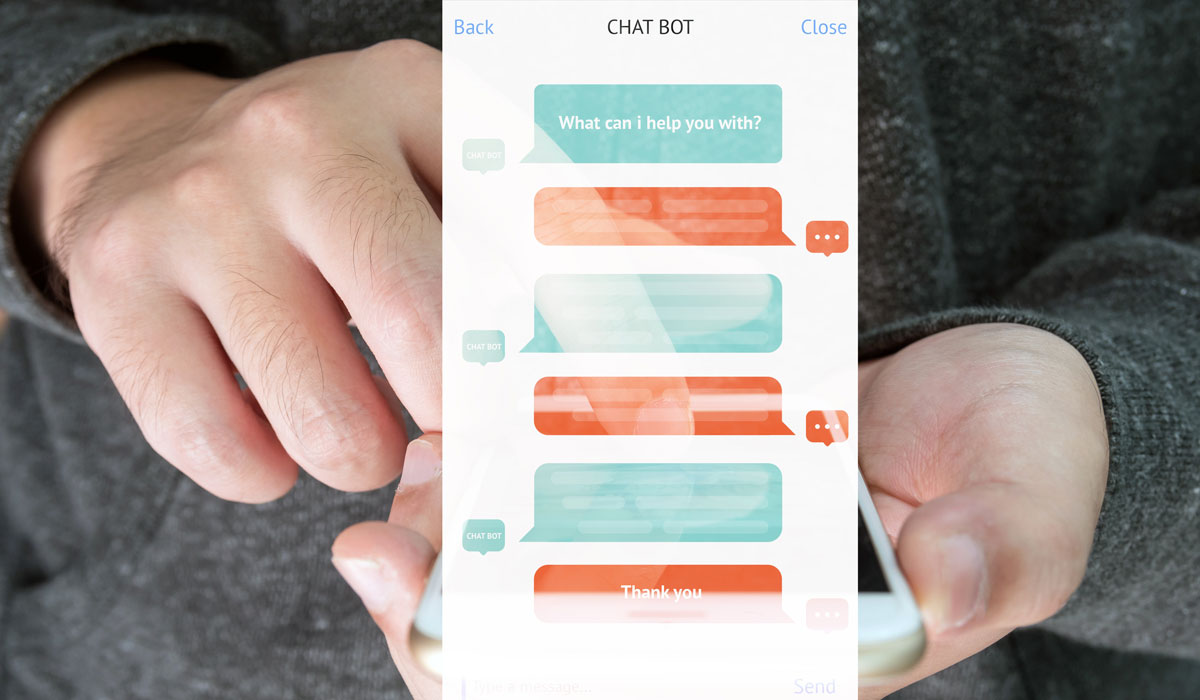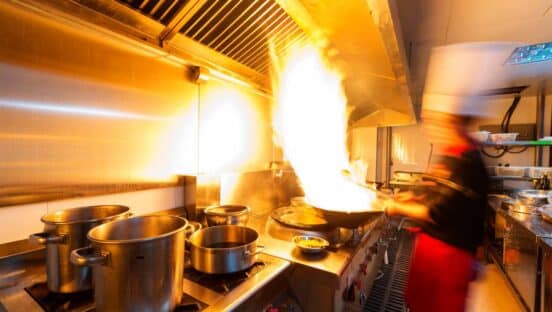Gartner predicts that by 2020, a whopping 85 percent of enterprise-customer relationships will be managed without human interactions. Surveys show that 89 percent of consumers opt to engage with businesses through text and 64 percent of consumers that communicate with businesses via text leave with a positive impression.
Clearly, we are not far from the time where majority of interactions will be automated completely given that conversational AI/intelligent chatbots are playing a crucial role in almost every industry.
With chatbots becoming mainstream, several industries are utilizing them as they offer greater and less intrusive opportunities when it comes to customer engagement (esp. hyper connected millennials). It is only a matter of time before chatbots in restaurants make their way to the forefront. Designed to communicate in a meaningful manner with customers, chatbots can be integrated with any interface (Facebook, Slack or Telegram to name a few). For example, the pizza bot from Domino’s takes delivery orders directly from Facebook Messenger with a mere emoji.
Given that customer retention and loyalty is at the core of any service-based business, it is paramount for restaurants to fulfill and exceed expectations when it comes to guest service. Everything from running marketing campaigns, their website to online and offline services is a means to attaining the very goal of impeccable service. However, be it ordering food, making a reservation or even getting recommendations, it is impossible for service staff to meet everyone’s standards consistently, which can result in a negative brand image for the restaurant.
With chatbots, your customers no longer need to make a call to reserve a table, wait for staff to attend to them or wait in line for tables to free up. Restaurants don’t need to have an exclusive service executive for the customers either. Bots can be programmed to carry out a myriad of tasks ranging from answering FAQs, making a reservation, ordering food or processing payment. The bot can carry out these tasks in manner similar to a service executive, difference being—it can execute round the clock with zero downtime.
Here’s an interesting scenario:
The customer uses the chatbot to order a steak. Post assessing the order, an intelligent chatbot can offer suggestions on pairing that steak with a red wine.



Additionally, if the customer is looking to simply order wine along with their food, the chatbot shows recommendations on the different kind of wines available with the restaurant.
Customer then selects the wine of his/her choice and places the follow up order. If this is an order for delivery, the payment can be processed through the bot itself.
Restaurants can use chatbots for similar meal pairings or recommendations—this not only engages the customer with your brand but also drives revenue. The best part? You don’t have to ask your customers to download the chatbot like an app (it can be integrated with the channel of your choice). These bots also keep the conversation ongoing. Whether it is by asking relevant questions, sharing interesting trivia or even cracking the occasional joke just like a friend would on Messenger.
Furthermore, chatbots in restaurants need to be perfectly synchronized with the marketing and other customer oriented efforts. Bots can parallel serve as an intelligence-gathering tool which assists a restaurant in understanding their customers. With customer contact details, past orders, preferred method of payment etc., the chatbot in restaurant can not only personalize a customers experience but also reward/incentivize loyal customers in order to increase repeat business—all through a well designed chatbot conversation.
That apart, while the staff focuses on preparing and serving food, chatbots can engage with the customers by answering questions related to open and close times, reward points or whether if the restaurant is open on a public holiday. The use cases of chatbot in restaurants rely heavily on the kind of experience restaurants want to offer their visitors.
For millennials, the generation that actively prefers not speaking with others, they can be the perfect fit as they are the ones who, apart from food, also expect a digital experience. This is where restaurants need to evolve by understanding modern day customer behaviors and expectations with the advent of digital technology.
Across multiple industries, capturing and retaining customer interest and business through AI powered technologies has now become a priority. An estimated 2 billion messages have been sent by 60 million businesses on Facebook messenger alone on a monthly basis. This shows that there is a huge opportunity for chatbot in restaurants when it comes to enhancing customer engagement and thereby opening the doors to a broader hyper connected demographic.
Hotels have already started integrating chatbots in their operational processes and noticed good ROI. Restaurants that take the leap in incorporating chatbots will be sure to see a growing customer base and more cost-effectiveness, which will ultimately be conducive to overall growth and revenue generation.













